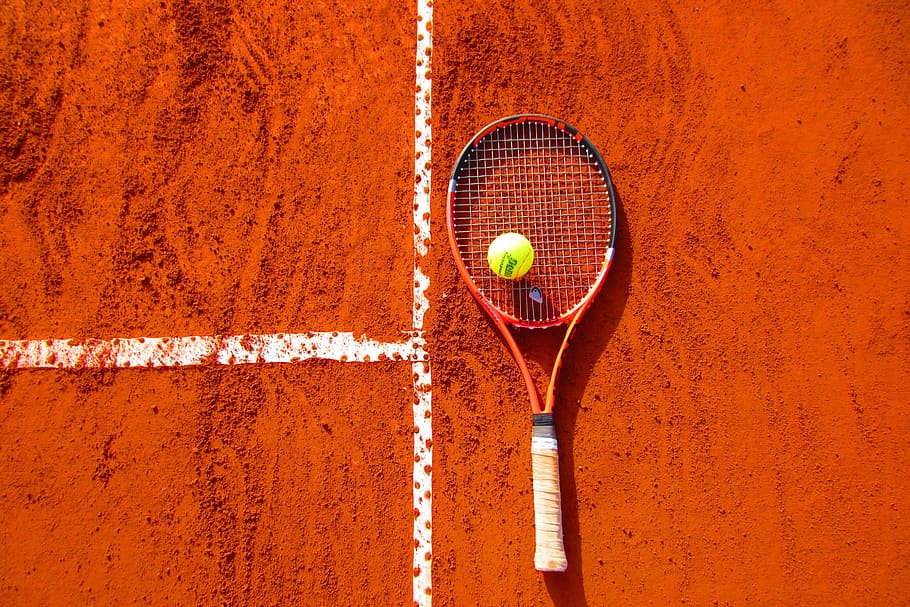When it comes to improving your tennis game, setting goals is a crucial action that goes beyond simply aiming for victories. While outcome goals—e.g., winning tournaments or reaching a specific ranking—are important, focusing solely on them may hinder your progress. In this article, we will explore the significance of setting different types of goals in tennis, including performance and process goals. Drawing on academic research, we’ll highlight the benefits of a holistic goal-setting approach and introduce how MTI provides top-level sport psychology coaching for current tennis professionals and aspiring pros.
The Importance of Performance and Process Tennis Goals:
You’ve probably already got an outcome tennis goal in mind, for instance, winning the tourney or being the best in your district. Outcome goals provide a long-term vision and help keep us motivated during our pursuits. However, the outcome isn’t fully controllable by us as it depends (in part) on the performance of others. Too heavily focusing on the outcome will inevitably lead to frustration and poor performance. Research has shown it can eventually lead to withdrawal and burnout compared to those who concentrate on task orientation.¹
Performance and process tennis goals, therefore, are essential for building a strong foundation and driving consistent improvement in your tennis skills. Performance goals are set against our own standard of excellence, for instance, improving our serve accuracy or increasing our first-serve percentage. Process goals lead us to execute a skill correctly, for instance, practicing 200 serves per week. Both of these goals, in effect, reorient one’s mind to be task-focused and on factors that can lead to improved performance—ultimately making us a more competitive player.²
Like other skill sports, setting proper tennis goals sits right alongside having the right mindset.
Balancing the Three Tennis Goals:
Maximizing your tennis development requires balancing outcome, performance, and process tennis goals. While outcome goals provide direction and motivation, performance and process goals offer the actionable steps needed to reach those outcomes. By setting specific, measurable, achievable, relevant, and time-bound (SMART) goals, you create a roadmap for success while keeping your focus on continuous improvement.
It’s important to note that studies have found that pursuing process goals can produce better performance, facilitate confidence, and reduce anxiety.³ So, focusing on the smaller processes that compose larger tennis goals can significantly impact your long-term tennis development.
In the interview below, Roger Federer strongly hints at his process and performance-oriented mindset when he says “It’s okay to lose.”:
Mental Training Inc: Empowering Your Tennis Journey
At MTI, we understand the significance of proper goal setting in optimizing your tennis performance. Our team of experienced sport psychology coaches specializes in working with tennis professionals and aspiring pros, helping them navigate the complexities of goal setting and mental training. Through personalized coaching sessions, we assist athletes in defining their desired outcomes, identifying performance indicators, and developing effective tennis goals tailored to their unique needs.
Conclusion
In tennis, setting goals is not limited to outcomes alone. Incorporating performance and process goals is essential to unlock your full potential and achieve continuous growth. Academic research supports the effectiveness of this holistic approach, emphasizing the benefits of a well-rounded goal-setting strategy. At MTI, we provide expert sport psychology coaching to tennis professionals and aspiring pros. We offer the guidance and support needed to enhance your goal-setting skills and optimize your performance on and off the court—email us today for a free meeting and intro.
Remember, tennis goals extend beyond victories—they shape your journey, emotions, and mindset and propel you toward becoming the best tennis player you can be.
—MTI
References:
1 Crespo, M., & Reid, M. M. (2007). Motivation in tennis. British Journal of sports medicine, 41(11), 769–772. https://doi.org/10.1136/bjsm.2007.036285
2 Harwood C, Biddle S. The application of achievement goal theory in youth sport. In: Coackerill I, ed. Solutions in sport psychology. London: Thompson Learning, 200258–73.
3 Kingston, Kieran M., and Lew Hardy. 1997. ‘Effects of Different Types of Goals on Processes That Support Performance’, The Sport Psychologist, 11.3: 277–93 10.1123/tsp.11.3.277>

